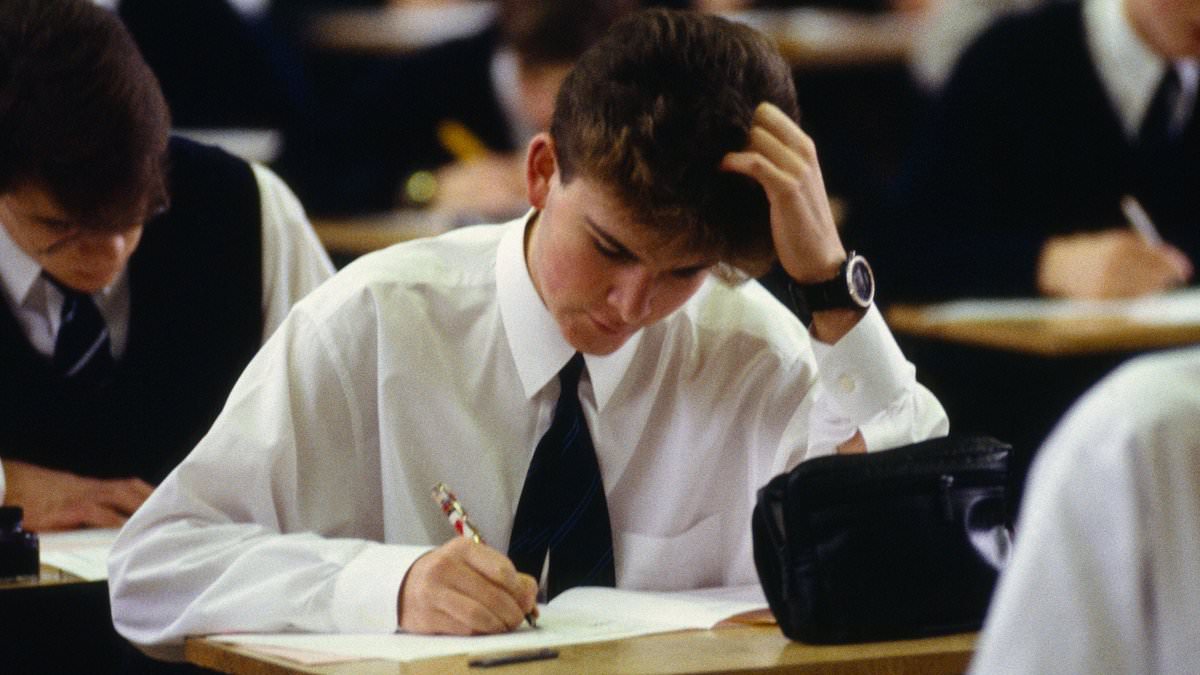Almost a third of pupils are getting extra time in GCSE and A-level exams under rules to help the soaring numbers of children with special educational needs.
Around 420,000 pupils are being given additional time to finish exam papers, four times as many as a decade ago, according to Ofqual, the exam regulator.
In 2012-13, only 107,000 children were given extra time, according to Department for Education figures.
The figures show a sharp disparity between children at private schools, 42 per cent, and those at state schools, 27 per cent.
Some head teachers told the Sunday Times that the system was being ‘gamed’ to boost exam results.
Others said the numbers reflected the sharp rise in children with learning difficulties.
The standard allocation is 25 per cent extra time.
In a two-hour exam, a child would get an extra 30 minutes to write an essay or check their workings in maths.
A small number of children with complex needs are given even more time.
Under the rules, extra time can be given to children with a wide range of learning difficulties, including cognitive problems such as dyslexia, and communication needs such as autism, along with other mental issues, such as anxiety.
Andrew O’Neill, secondary headteacher of All Saints Catholic College in North Kensington, west London, said: ‘My concern would be that some schools are using this as a perverse incentive to game the system so that children gain more of an advantage in public examinations. This needs to be scrutinised further.’
Another secondary head said: ‘Extra time has become a standard thing for families and schools to seek as they look to boost exam results. Add to this the explosion in the number of children designated as having special educational needs and it’s no surprise that numbers seeking extra time have rocketed.’
More than 1.6 million pupils in England are designated as having special needs. The DfE said there had been a growth in autism, speech, language and communication needs, and social, emotional and mental health needs in recent years.
